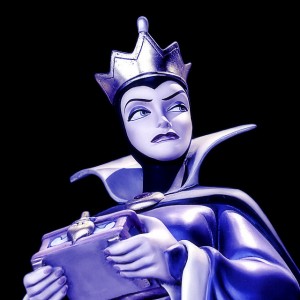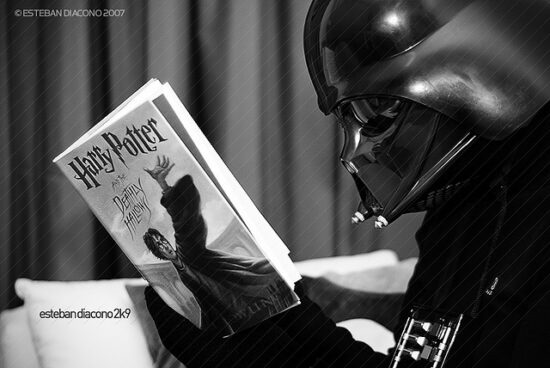In reality and fantasy, individuals act out of differing motives and backgrounds. But all people have a core they are striving for, an inner itch they seek to scratch.
Villains
Our contemporary culture has given us some amazingly complex fictional villains, ones with overlapping motives and obtuse back stories. This is because real villains of the 20th century – Hitler, Stalin, Pol Pot – made us realize the depths evil could plumb. Trying to make sense of that sort of evil spurred investigating what makes people do what they do.
But villains actually seek a good thing, not an evil… at least a good thing for themselves. They don’t seek self-misery; they seek significance. Now that may mean they make others suffer, but they don’t seek that for themselves.
They want to fill the voids within them. And boy, do they have a lot of voids.
Darth Vader initially sought to save his wife. That didn’t work out so well. He kept seeking to fill the void he made in himself. I mean, he was the one that chose to listen to the wrong people. Let that be a lesson for us all.
Lord Voldemort went to find power, a thing that is not inherently evil, though it ends up that way most of the time since we’re all so fallible. He wanted to be happy… really he did. He just thought Harry Potter had to be dead for that to happen.

Evil Queen photo credit: Express Monorail via photopin cc
When Regina in Once Upon a Time is conjuring her curse, the blind witch with her asks, “Then will we be happy?” A pathetic plea… but a truthful one.
So what were the motives of Hitler, Pol Pot, Stalin, Jeffrey Dalmer? Whatever they were, they were seeking something they thought was good for them, at least in their minds.
When the human mind starts only with itself, evil is easily grasped. This is why we need a higher perspective than our own.
Heroes
It’s the heroes who should have the more interesting motives. The hero or heroine is seeking to do what’s right even if it is against their own health or happiness. Most times it is. Tracing back their actions to these motives reveals how they view the world and themselves in it.
Self-fulfillment can be as simple as survival, a commonality with other life from bacteria on up. But beyond survival, personality strives for a bit more than mere existence. The striving can range from base power mongering to high sacrifice for a noble cause.
When the hero works out his own motives and morals, questioning and testing, the reader connects with his own humanity. Well, I guess as long as the reader himself is not evil to his own core.

Luke Skywalker photo credit: nickstone333 via photopin cc
Luke Skywalker first wanted to help in the rebellion for the adventure of it, then out of sorrow and anger. Later his motives deepen into the desire to redeem of his father and protect his sister. By the end, Luke had more motives than Darth Vader had replacement parts.
Harry Potter fought evil to survive. As he did he realized he wanted to save his friends, even his remaining family who didn’t give a jot for him. He wanted to work for the same cause his father, mother, and godfather had worked for. He got to the point of fighting evil so that good – that is, freedom and kindness and justice – would have a future even if he didn’t.
Emma Swan in Once Upon a Time wanted first only to make sure Henry is taken care of. Regina overplayed her hand, gets cranky and combative when she needn’t have. Villains do this a lot. Emma decided to stay not only for Henry but for the challenge. Soon she found friends and a community she cared about, something she hadn’t had, and she joins it. Her motives then expanded beyond Henry. Henry himself was the one who illuminated her of this.
Conflict
Between heroes and villains, motives and means clash. The clash itself is the action of the story.
It seems the villain’s happiness rests on the expense of others, while the hero’s happiness comes at his expense for the benefit of others. Many times in fantasy and science fiction, the conflict boils down to individual liberty versus tyranny. Those villains just can’t live and let live.
So the two dudes never do play nice. Their motives are locked in a battle, a deep, inward battle that opens out into their lives and the lives of others.
But the ‘why’ is a look into the character, the fictional character… and ourselves.




Love it
Drew, these posts are always so insightful. I enjoy the thought process you lead the reader through. Thanks for letting your creative outlet be a blessing to others.
Thanks, Peggy! I enjoy the creative outlet for my sometimes odd thought process and enjoy hearing back from you.